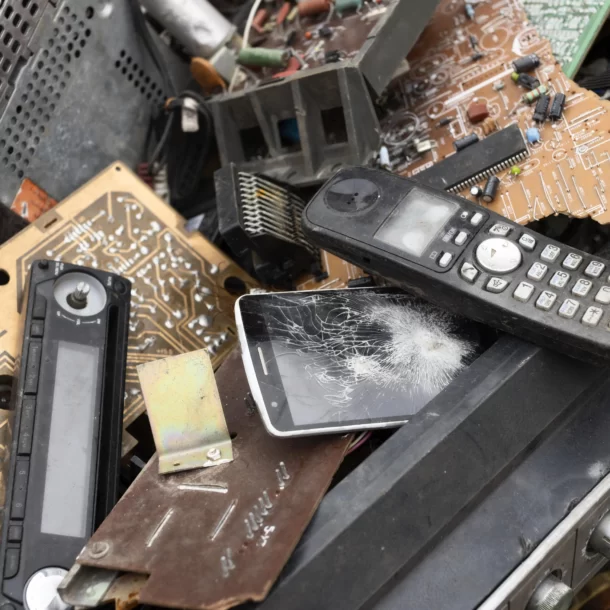Addressing the Environmental Impact of E-Waste: Promoting Responsible Recycling in India
E-waste discarded electronic devices, has emerged as a global environmental concern. In India, the mounting e-waste problem demands urgent attention and responsible recycling practices. This blog explores the environmental impact of e-waste and highlights the importance of promoting responsible e-waste recycling in India.
Understanding the Environmental Impact of E-Waste
The improper disposal of e-waste poses significant environmental risks. Toxic substances like lead, mercury, and cadmium present in electronic devices can contaminate soil and water, leading to pollution and health hazards. E-waste also contributes to climate change and resource depletion due to the energy-intensive extraction of raw materials.
Current State of E-Waste Recycling in India
India is grappling with the challenges of managing e-waste. The existing e-waste recycling infrastructure faces limitations, resulting in inadequate collection and inefficient recycling processes. A comprehensive understanding of the current state of e-waste recycling helps identify areas that require improvement.
Promoting Responsible E-Waste Recycling
To address the environmental impact of e-waste, responsible recycling practices must be promoted in India. Extended Producer Responsibility (EPR) plays a crucial role, requiring manufacturers to take responsibility for the lifecycle of their products, including collection, recycling, and safe disposal. Efficient e-waste collection, proper sorting, safe dismantling, and maximizing resource recovery are essential for responsible e-waste recycling. Additionally, public awareness and education programs can encourage responsible e-waste disposal practices.
The Indian government has introduced various initiatives and policies to tackle e-waste management. These policies focus on e-waste collection, recycling standards, and encouraging manufacturers’ compliance with EPR regulations. Evaluating the effectiveness and enforcement of these policies ensures continuous improvement in e-waste management practices.
Collaboration and Stakeholder Engagement
Addressing the e-waste challenge requires collaboration between the government, industry, NGOs, and the public. Government-industry partnerships can improve e-waste recycling infrastructure and facilitate knowledge sharing. Active participation from consumers in responsible e-waste disposal is crucial. Stakeholders must work together to raise awareness, enforce regulations, and promote sustainable e-waste management practices.
International Best Practices and Lessons Learned
Learning from successful e-waste recycling models implemented in other countries provides valuable insights. Best practices such as advanced recycling technologies, effective collection systems, and collaborative approaches can be adapted to the Indian context. International experiences help identify strategies and solutions that can be implemented in India’s e-waste management framework.
Future Outlook
The future of e-waste management in India lies in adopting responsible recycling practices. Enhancing recycling infrastructure, enforcing EPR regulations, and promoting public awareness are crucial steps. Continuous improvement, innovation, and collaboration between stakeholders will pave the way for sustainable e-waste management. By addressing the environmental impact of e-waste, India can safeguard the environment, protect public health, and create a circular economy that optimizes resource utilization.
It is essential for the government, industry, NGOs, and citizens to come together and prioritize responsible e-waste recycling practices. Through collective action, India can lead the way toward a greener and more sustainable future. Let us strive towards responsible e-waste management practices that preserve the environment for generations to come.


